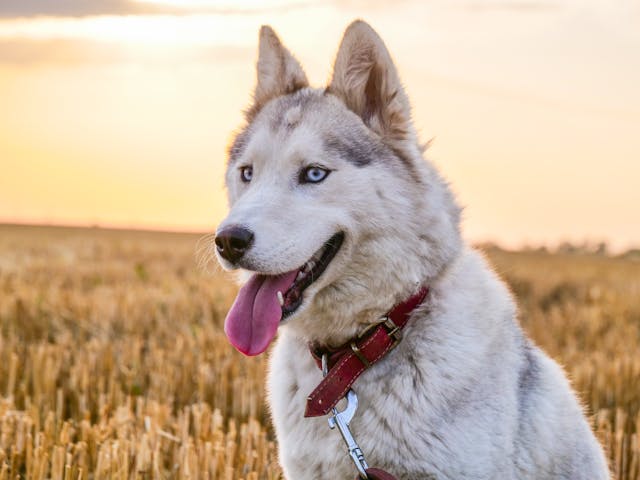Top Dog Breeds for Indian Households
Choosing the right dog breed for an Indian household entails considering factors such as adaptability to the climate, temperament, and the breed’s compatibility with children and other pets. Indian families benefit from a variety of dog breeds, both native and imported, that are well-suited for their environment. Among the native breeds, the Pariah Dog and Rajapalayam stand out due to their resilient nature and low maintenance needs. The Pariah is known for its ability to thrive in diverse climates, while the Rajapalayam, with its loyalty and protective instincts, makes an excellent family companion.
In addition to native breeds, mixed-breed dogs are highly popular in India. However, some non-native breeds also excel in Indian households. The Labrador Retriever, for example, is celebrated for its friendly nature, intelligence, and trainability. This breed is known to be great with children and adapts well to living in busy households. Another popular choice is the Golden Retriever, recognized for its gentle disposition and playful spirit, making them ideal companions for families.
Physical characteristics and health considerations are also vital when selecting a dog breed. For instance, Labradors generally weigh between 55-80 pounds and require regular exercise to maintain their health. Similarly, Golden Retrievers need consistent physical activity and mental stimulation to avoid boredom. It is essential for families to provide these breeds with daily outdoor time, which contributes to their overall well-being. Furthermore, native breeds like Rajapalayam possess a strong physique and typically require less grooming compared to other breeds. Understanding these factors enables families in India to choose a breed that fits seamlessly into their lifestyle, ensuring a joyous and lasting bond with their canine companion.
Considerations for Choosing the Right Dog Breed
Selecting a dog breed that aligns with your lifestyle and living conditions is crucial for ensuring a harmonious relationship between you and your pet. In India, where people reside in diverse environments, understanding the specific needs of both urban and rural households can make a significant difference. For instance, families living in city apartments often require a breed that is more adaptable to confined spaces and can handle limited exercise opportunities. Smaller breeds such as Dachshunds or French Bulldogs are often ideal for urban living due to their manageable size and moderate energy levels.
On the other hand, those in rural areas might have the luxury of space, allowing for the consideration of larger breeds that require more room to roam and exercise. Breeds like Labrador Retrievers or Golden Retrievers thrive in environments where they can expend energy outdoors. Additionally, understanding the daily time commitment required for training and care is vital. Puppies, regardless of breed, require significant attention for socialization and basic training. Some breeds may also be more challenging to train than others, necessitating time and patience.
Health issues accompanying certain dog breeds are another critical element to evaluate during the decision-making process. Breeds that are common in India may have specific predispositions to health concerns, such as skin allergies or joint issues. It is advisable to conduct thorough research on any potential breed, including common health problems and life expectancy, as these factors can greatly impact the care and expenses involved in ownership.
Available in Amazon
Bark Out Loud by Vivaldis- Antimicrobial Skin Spray for Dogs & Cats - Relieve Itching, Hot Spots, Allergies, and Wounds with 99.9% Microbe-Killing Power (100 ml, 1 Piece)
₹395.00 (as of November 21, 2024 21:03 GMT +00:00 - More infoProduct prices and availability are accurate as of the date/time indicated and are subject to change. Any price and availability information displayed on [relevant Amazon Site(s), as applicable] at the time of purchase will apply to the purchase of this product.)Bonefire Supplement for Dogs | Best Bone, Joints and Ligament Care Solution
₹1,805.00 (as of November 21, 2024 21:03 GMT +00:00 - More infoProduct prices and availability are accurate as of the date/time indicated and are subject to change. Any price and availability information displayed on [relevant Amazon Site(s), as applicable] at the time of purchase will apply to the purchase of this product.)Chappi Adult (1+ Years) Dry Dog Food, Chicken & Rice, 20 kg, Complete and Balanced Food for Adult Dogs,
₹2,852.00 (as of November 21, 2024 21:29 GMT +00:00 - More infoProduct prices and availability are accurate as of the date/time indicated and are subject to change. Any price and availability information displayed on [relevant Amazon Site(s), as applicable] at the time of purchase will apply to the purchase of this product.)Dofo All Stage Dog Food 2kg, Fresh Chicken & Vegetables – Balanced Nutrition for Adults
₹1,250.00 (as of November 21, 2024 21:29 GMT +00:00 - More infoProduct prices and availability are accurate as of the date/time indicated and are subject to change. Any price and availability information displayed on [relevant Amazon Site(s), as applicable] at the time of purchase will apply to the purchase of this product.)Drools Absolute Dog Supplement Sausages, Calcium Falvor 32 Pcs Jar
₹830.00 (as of November 21, 2024 21:03 GMT +00:00 - More infoProduct prices and availability are accurate as of the date/time indicated and are subject to change. Any price and availability information displayed on [relevant Amazon Site(s), as applicable] at the time of purchase will apply to the purchase of this product.)Drools Absolute Dog Supplement Syrup, Salmon Flavor 300 ml Jar
₹490.00 (as of November 21, 2024 21:03 GMT +00:00 - More infoProduct prices and availability are accurate as of the date/time indicated and are subject to change. Any price and availability information displayed on [relevant Amazon Site(s), as applicable] at the time of purchase will apply to the purchase of this product.)Drools Absolute Dog Supplement Tablet, Skin + Coat 400g 110 Pieces Jar
₹446.00 (as of November 21, 2024 21:03 GMT +00:00 - More infoProduct prices and availability are accurate as of the date/time indicated and are subject to change. Any price and availability information displayed on [relevant Amazon Site(s), as applicable] at the time of purchase will apply to the purchase of this product.)Drools Absolute Dog Supplement Tablet, Vitamin 175g 50 Pieces Jar
₹233.00 (as of November 21, 2024 21:03 GMT +00:00 - More infoProduct prices and availability are accurate as of the date/time indicated and are subject to change. Any price and availability information displayed on [relevant Amazon Site(s), as applicable] at the time of purchase will apply to the purchase of this product.)Drools Absolute Dog Supplement Tablet, Vitamin Falvour 400g 110 Pieces Jar
₹446.00 (as of November 21, 2024 21:03 GMT +00:00 - More infoProduct prices and availability are accurate as of the date/time indicated and are subject to change. Any price and availability information displayed on [relevant Amazon Site(s), as applicable] at the time of purchase will apply to the purchase of this product.)Drools Absolute Dog Supplement Tablets, Calcium Falvour 400g 110 Pieces Jar
₹446.00 (as of November 21, 2024 21:03 GMT +00:00 - More infoProduct prices and availability are accurate as of the date/time indicated and are subject to change. Any price and availability information displayed on [relevant Amazon Site(s), as applicable] at the time of purchase will apply to the purchase of this product.)Lastly, the choice between adopting and buying a dog should be given due consideration. Adoption not only saves lives but often provides the opportunity to find a breed or mix that is a perfect fit for your lifestyle at potentially lower costs. In conclusion, reflecting on these factors can ensure that you choose a dog breed that is well-suited to your unique living situation, leading to a fulfilling companionship.
Cute Dog Names to Pick for Your Furry Friend

Choosing the perfect name for your dog is a delightful yet challenging task. A name not only reflects your pet’s personality but also resonates with their breed and characteristics. To aid in selecting an endearing name, we can explore various themes such as food, nature, and Indian mythology. These categories can provide a wealth of inspiration, ensuring you find a name that truly suits your furry friend.
Food-inspired names are a popular choice among dog owners. Think of names like “Cookie,” “Muffin,” or even “Chutney,” reflecting not only an appealing aspect of human cuisine but also an element of cuteness suitable for your pet. These names evoke warmth and joy, making them perfect for a soft and cuddly companion.
Next, let’s delve into nature-themed names. Names like “River,” “Luna,” or “Sunny” can embody the spirit of the natural world, capturing attributes of the environment or celestial bodies. Nature-inspired names often resonate with the lively and energetic nature of dogs, creating a harmonious bond between the pet and their surroundings.
Indian mythology presents a rich tapestry of name choices. Consider names like “Sita” or “Rama,” which reflect historical and cultural significance. Such names not only provide a unique aspect to your dog’s identity but also celebrate Indian heritage, making them special for your canine companion.
When selecting a name, pay attention to its sound and the ease of pronunciation. Names with one or two syllables tend to be more effective, as they are easily recognizable by dogs. Ultimately, the right name will mirror the essence of your dog’s character, making the bond between you and your furry friend even more special.
Tips for Training and Naming Your Dog
Training your dog effectively starts with selecting an appropriate name. A good name should be simple, easy to pronounce, and ideally one or two syllables long. This simplicity helps your dog quickly recognize and respond to commands. Names like “Buddy,” “Bella,” or “Max” are often favored due to their brevity and clarity. When training your dog to respond to its name, begin by using it frequently in positive contexts. For instance, call your dog’s name during playtime or feeding to create a positive association.
Consistency is crucial in dog training. Using the same commands and tone of voice each time helps reinforce learning. When a dog hears its name, it should be accompanied by a corresponding action or behavior. For example, when calling your dog, ensure you use a cheerful tone that signifies reward or attention. This consistent usage establishes a clear communication channel and helps your dog link its name with positive experiences.
Positive reinforcement significantly enhances the training process. Whenever your dog responds to its name or follows a command, reward it with treats, praise, or affection. This not only strengthens the bond between the dog and owner but also enhances the likelihood that your dog will repeat the desired behavior in the future. Be patient, as every dog learns at its own pace. When introducing commands, practice in short, frequent sessions to maintain your dog’s focus and interest.
As your dog becomes more adept at recognizing its name and commands, gradually introduce more complex tasks. This progressive approach helps maintain motivation and stimulates mental engagement. With persistence and appropriate training techniques, you will foster a strong connection with your dog, ensuring that it not only responds to its name but also enjoys the training process.











Pingback: Understanding Rottweiler Breeds and Their Unique Temperament